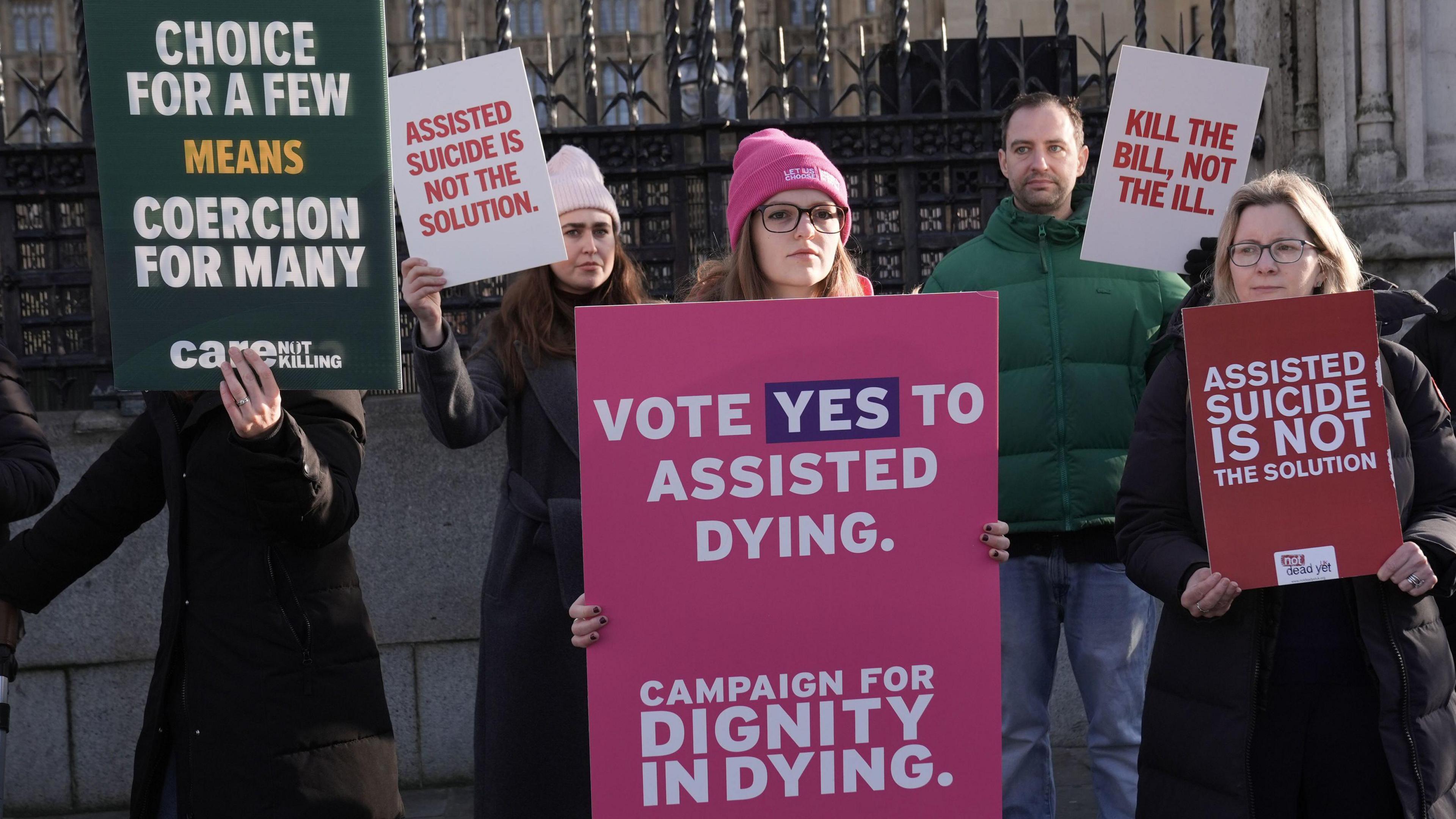A momentous day in Parliament, whatever happens next

- Published
MPs voting in favour of assisted dying is not the end of the debate - but this is still a hugely important moment.
A law has yet to be passed, but Parliament has taken a step towards a colossal social change in England and Wales.
It is a change comparable to the Abortion Act in 1967, which make some terminations of pregnancy legal in England, Scotland and Wales (abortion became legal in Northern Ireland in 2019).
Or to the the Sexual Offences Act also of 1967, which led to the partial decriminalisation of homosexual sex in England and Wales. Or, the legislation two years earlier, in 1965, that banned the death penalty in the UK.
And, more recently, the legalisation of gay marriage in England and Wales in 2014.
I spent an hour or so after the vote standing in and around what is known as the Members’ Lobby, talking privately to MPs.
The magnitude of what has just happened is not lost on any of them.
“Parliament has done something very special today, and it was an utter privilege to be in there, to get to speak and to get to vote,” said a newly-elected Labour MP who backs a change in the law.
Another MP, a Conservative who voted against the Bill, noted the silence that greeted its passing today.
“It felt like a collective sense of ‘what have we just done?’” they noted.
Others say that silence – notable because there are normally huge cheers from the winning side when big votes are won – reflected the dignity and maturity of this debate from beginning to end.
For all those here today of the strongest conviction, for or against, there were plenty who are much more circumspect.
Another MP stopped me.
“I voted for it. But I’m really not certain what I will do further down the track. And I wouldn’t be surprised if this is defeated later on,” they told me.
Days like this make me reflect on this place, parliament, that I have spent most of my working life reporting upon.
The Commons today was at its expansive, thoughtful, passionate best.
The nature of parliamentary party politics is most debates here are looked at directly through the prism of party politics.
Loyalty, ideology, the spectrum of Left and Right, for instance.
That isn’t something to be overtly jaded about, if you can manage it – it is a necessary organising tool for governments and opposition parties to bind themselves together.
But for those with a cynicism or tiredness for the inevitably partisan nature of Westminster, today was a day to take another look.
A "visceral and direct" conversation about life and death, as one MP put it.
That is precisely what it was, for five hours.
We heard testimony about the most horrible deaths, told in respectful silence, from those demanding a change in the law.
And then the power of the case that the State must not become a "suicide service" as one described it.
There are those of total conviction on each side of the argument.
And others still deeply conflicted.
While there can be no certainty what will happen from here on in, what we can say is the UK, or any constituent parts of it, has never come this close to changing the legal terms around how some of us may one day choose to die.
No parliament can bind its successors and this parliament has not yet bound itself on a guaranteed course.
But this topic will be a long running, passionate and keenly fought argument in 2025, with the prospect of it becoming an era defining change in the law, where the actions of parliamentarians tilt society in a direction from which it may never turn back.